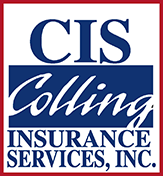One of the paradoxes of business is that the more successful a company becomes, the more risk that success inherently carries. However, this doesn’t mean that small businesses are exempt from risks. The fundamental difference between smaller and larger companies lies in what they stand to lose and what’s at stake. To protect their companies from these risks, business owners in the Lakewood, CO area turn to the trusted and professional team at Colling Insurance Services Inc. for all their commercial insurance inquiries and concerns.
Commercial Insurance Solutions for Businesses of All Sizes
The cost of an accident, claim, or other issues can be substantial for larger companies. In contrast, while small businesses may not face comparable losses, a single major issue can have devastating effects and could even result in the company closing its doors. Fortunately, commercial insurance can help protect businesses of all sizes across every industry. That’s why it’s beneficial to work with experienced and proven agents who can assess your business risks and help you secure the commercial insurance solutions your business requires.
Commercial Insurance Solutions for Business Owners in the Lakewood, CO Area
If you’re a business owner in the greater Lakewood, CO area and have questions or need commercial insurance solutions for your company, we can assist. Contact us to learn more and schedule an appointment with our friendly and knowledgeable team at Colling Insurance Services Inc. today for the commercial insurance solutions and protection your business needs and deserves.




 Email an Agent
Email an Agent


 Click to Call
Click to Call Get Directions
Get Directions